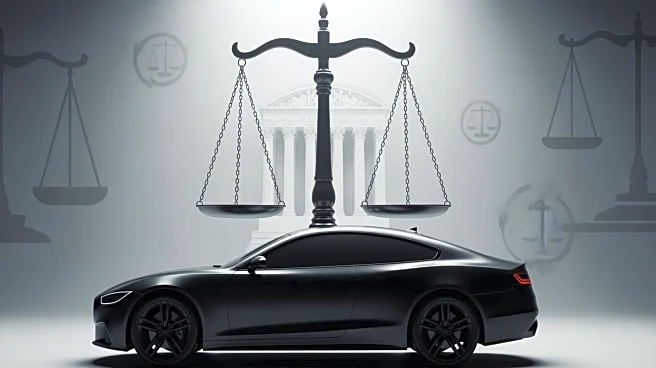What's Happening?
The Supreme Court has raised questions about the legality of President Trump's tariffs, which have been a significant concern for the auto industry. These tariffs, implemented to bring more manufacturing
jobs to the U.S., have faced scrutiny from a skeptical majority of justices. The potential ruling against these tariffs could offer hope to the struggling auto industry, which has been affected by increased costs and trade tensions. However, unwinding these taxes, if deemed unconstitutional, could present complex challenges.
Why It's Important?
The Supreme Court's questioning of the tariffs could lead to significant changes in trade policy and economic conditions for the auto industry. If the tariffs are ruled illegal, it may alleviate some financial burdens on automakers, potentially leading to lower costs and increased competitiveness. However, the process of reversing these tariffs could be complicated, affecting supply chains and international trade relations. The outcome of this legal challenge could have broad implications for U.S. trade policy and economic strategy.
What's Next?
The auto industry and other stakeholders are closely monitoring the Supreme Court's deliberations, as a ruling against the tariffs could necessitate adjustments in business operations and trade strategies. Companies may need to prepare for potential changes in import costs and supply chain dynamics. The legal proceedings will continue to unfold, with significant attention from industry leaders and policymakers.










